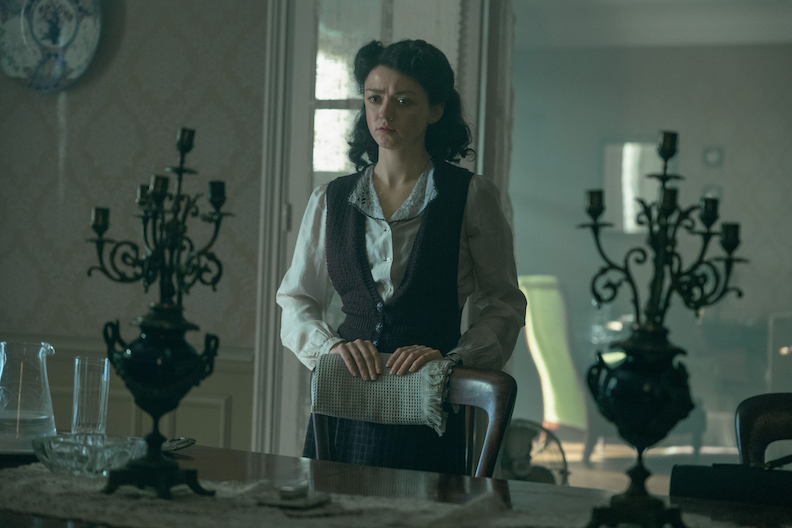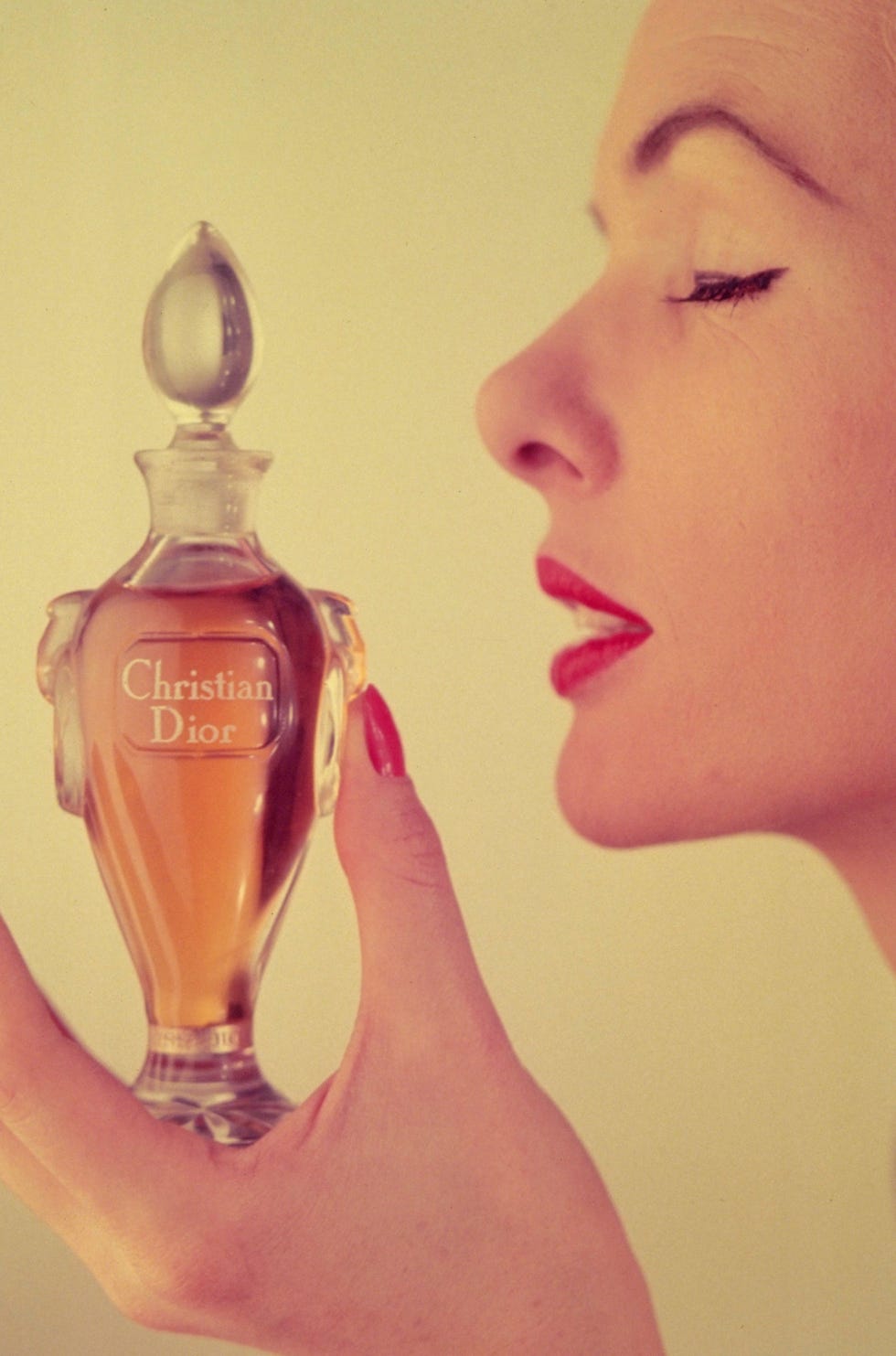Of the many names dropped like lightning bolts into the first episode of Apple TV+’s prestige historical drama The New Look—among them Christian Dior, Coco Chanel, Pierre Balmain, Cristóbal Balenciaga, and, yes, Heinrich Himmler—perhaps the one that seems most peculiar is Catherine Dior. Her relevance is, of course, identifiable, if only for her adjacency to Christian (Ben Mendelsohn), her brother 12 years her senior. But while even viewers who’ve never set foot in an atelier will recognize this man, the namesake behind a true titan of the fashion industry, far fewer will know anything about his little sister. If they do, it might only be thanks to her own namesake: the Miss Dior perfume, still a staple of the Dior fragrance brand more than 75 years after its conception.
As Miss Dior: A Story of Courage and Couture author Justine Picardie writes in her biography of the late Catherine, she was “more or less invisible to Christian’s acolytes,” in spite of her enormous importance not only to Christian as family but to Paris itself, the home of his atelier. As The New Look depicts, Catherine became a Resistance operative during World War II, having fallen in love with a fellow Resistance member named Hervé des Charbonneries, whom she’d met while shopping in Cannes. By 1941, she was throughly embedded in their shared cause: She’d adopted the code name “Caro,” and was vital to the underground intelligence network until her sudden arrest in 1944, when the Gestapo captured and tortured her in an attempt to secure the secrets she carried. She never gave them up. Shuttled from a French prison to the women’s concentration camp Ravensbrück (and beyond, to camps and factories including Torgau, Abteroda, and Markkleeberg), Catherine was finally freed amid Allied invasion in April 1945, and she returned to Paris—and her brother—in May 1945, the same month as Germany’s surrender.
By the time Christian debuted his first haute couture collection, christened “The New Look” by Harper’s BAZAAR editor-in-chief Carmel Snow, the year was 1947; he’d opened the House of Dior in Paris; and Catherine had immersed herself not in fabric but in flowers. She and Hervé had launched a fresh-flower business in the wake of the war, a job Catherine would continue even as her brother’s name became not simply synonymous with Paris couture but with fashion the world over. After his death in 1957, she continued to run a rose farm in Provence, even as she safeguarded the Dior brand into a new millennium.
Catherine might have admired her brother’s designs (and inspired his first fragrance), but she never did become the face of either. Picardie writes in Miss Dior that she believes this distance between Catherine the woman and Dior the luxury house was intentional: “I have come to believe that Catherine was possessed of a rare grace and inner strength that would have protected her from the jostling fashion crowd, with their sharp elbows, narrowed eyes, and stiletto heels. Catherine knew who she was. She had walked to hell and back. She loved her brother, and applauded his success, but she did not need the protection or disguise of his clothes. In the images that show Catherine wearing a Dior dress—for example, in the garden at Les Naÿssès, a glass of wine in her hand, or at the christening of her godson Nicolas, cradling him close—she still looks entirely herself.”
This is the “Miss Dior” The New Look aims to spotlight—in some respects, for the first time ever—as embodied by former Game of Thrones star Maisie Williams. The actress, 26, is the same age as Catherine was when the Gestapo first arrested her in 1944, and she lost approximately 26 pounds in order to embody the emaciated Catherine who escaped years later. As Williams told Harper’s BAZAAR UK, “Every day of filming was a reminder that we were portraying a story of the horrors that humans are capable of inflicting on one another, but also the magic and the hope and the love… Ultimately, we wanted to make a show that was uplifting.” Perhaps this message, more than any iconography of the Dior brand, is what Catherine would have most sought to communicate. As reported in a Vogue article on the younger Dior’s “quiet” influence, she spoke only rarely about how she survived the war, preferring instead to focus on the singular belief that kept her going: “Love life.”


